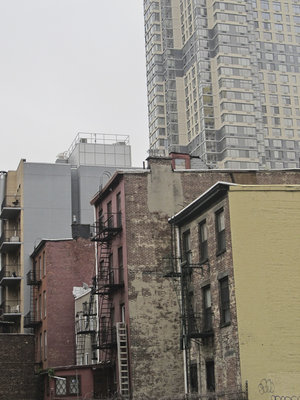The Port Authority of New York and New Jersey owns 40 properties in Jersey City, yet pays no real estate taxes on most of them. The properties would yield approximately $18 million per year if taxed at a normal rate, and historically would have generated more than $315 million in tax revenue.
The city wants that money, particularly since it could help lower other property owners’ tax bills.
This week, after months of failed negotiations with the agency, Jersey City has decided to sue the Port Authority in an attempt to recover $400 million in back property taxes. Mayor Steve Fulop had first threatened to file the suit last November.
City officials also intend to legally block a $118 million waste transfer station at Greenville Yards if the Authority is unwilling to agree to pay host transfer fees to the city to cover increased costs of services caused by the station.
“Our attorneys engaged in preliminary discussions to settle these matters outside of court,” Fulop said last week. “However, those discussions did not resolve the issues between the city and the Port Authority. We are moving forward with the lawsuit to ensure Jersey City receives its fair share in taxes from the Port Authority. We will not be bullied or pushed around.”
“We are moving forward with the lawsuit to ensure Jersey City receives its fair share in taxes from the Port Authority.” – Steve Fulop
____________
Although assessed at $9.5 million, The Journal Square PATH Plaza, which the authority purchased in 1967, yields to the city only an $87,000 annual payment in lieu of taxes.
Taking New York City’s garbage
Greenville Yards in Jersey City is scheduled to be the site of a $118 million Authority redevelopment project to create a barge-to-rail transfer station for New York City garbage. City officials say this facility would strain city resources, but the Authority has declined to pay a host transfer fee to offset the added costs, a common practice for such operations.
Additionally, the Authority’s PILOT payments are barely half of what current taxes would yield for the Greenville Yards.
“We have learned from our experience with rail line law about the city’s rights, and we feel comfortable that how the Port Authority acquired properties and how it uses them will not be upheld,” Fulop said. “We will begin the long legal process of blocking this facility as well.”
Suit seeks a number of decisions
In the complaint filed in U.S. District Court, Jersey City seeks declaratory relief regarding the Port Authority’s position that it has no obligation to pay real estate taxes or make fair and reasonable PILOT payments to the city.
The suit also seeks an accounting, the appointment of a special master, reformation of existing PILOT agreements and the execution of additional PILOT agreements, the disgorgement of properties, compensation for the city’s undue loss of taxes, and the immediate production of documents requested months ago from the Port Authority relating to authority-owned properties in the city and to the authority’s disparate treatment of properties in other municipalities.
“We feel confident we have a strong case against the Port Authority and will prevail on behalf of the Jersey City taxpayers,” Fulop said. “This type of inequity cannot continue and we are prepared to demonstrate how the people of Jersey City have been caused undue economic harm over the years.”
He added, “It speaks to the larger issue of how the politics at the Port Authority have continued to negatively impact the residents of Jersey City and New Jersey.”
When first raised in November, the city said the Port Authority allegedly refused to enter into tax agreements on most of the properties it owns in Jersey City,
The city began legal proceedings when the City Council agreed in November to retain the services of the politically powerful law firm, Weiner Lesniak. The move then was designed to show the Authority how serious the city felt about the issue. But the agency still didn’t respond.
The Port Authority currently pays about $2 million annually to Jersey City. The city estimates that a comparable private sector company would be paying about $9.6 million annually.
The authority, according to the city, is supposed to automatically enter into a PILOT agreement with the city each time it purchases property, something the city claims the Authority has failed to do for nearly two dozen properties.
The Port Authority was sued by the City of Newark in the late 1990s for back rent, and eventually settled.
The authority did not respond to requests for comment by press time.
Al Sullivan may be reached at asullivan@hudsonreporter.com.
